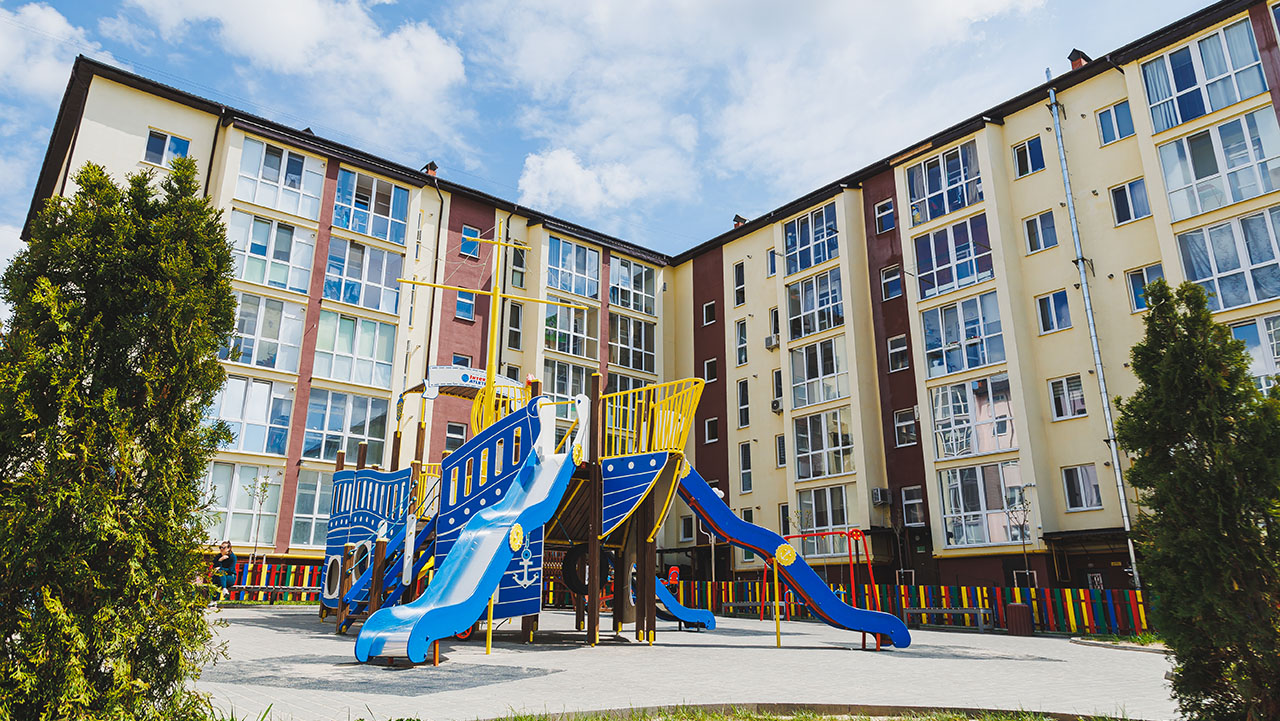
Buildings are a top source of carbon pollution—both globally and in Minnesota—contributing 40 percent of U.S. greenhouse gas emissions. And while Minnesota’s electricity and transportation sectors are getting cleaner, pollution from buildings is increasing every year. It’s a growing problem that needs immediate action.
Scientists agree that if we have any hope of addressing global climate change, we must be carbon neutral across the economy by mid-century or before. That means getting all the carbon pollution out of our electricity system as well as in other sectors such as transportation, agriculture, industry, and buildings.
A crucial aspect of the Strategic Framework that guides all of Fresh Energy’s work is the “energy transition.” Through our energy transition imperative, Fresh Energy is working to create a carbon-neutral economy by 2050 through high-impact integrated solutions. To do this, Fresh Energy is zeroing in on the climate, health, and economic benefits provided by deeper decarbonization within the energy transition. Our work focuses on equitable, climate-friendly policies to decrease our reliance on fossil gas used in buildings and to build cleaner, more efficient buildings.
The Buildings department
Fresh Energy’s Buildings department is led by Joe Dammel, managing director, and encompasses Fresh Energy’s work on building energy performance, building electrification, and gas system decarbonization. The department resides within Fresh Energy’s energy transition imperative alongside clean transportation and industrial work.
“The science says that we need to be carbon neutral by 2050, and there is no time to waste. From our buildings to our fossil gas system to our industrial practices, we must scrutinize it all and push the energy transition forward even faster,” said Fresh Energy’s Margaret Cherne-Hendrick, senior lead, innovation and impact. “Fresh Energy has a long history of investing in high impact programmatic work, and our Buildings department builds on that legacy and invests in Minnesota’s future.”
We know how buildings can operate without carbon pollution, and we are working on multiple pathways to get there. The Buildings department consolidates Fresh Energy’s existing work on gas decarbonization, building energy performance, and electrification under one programmatic roof. The Buildings department houses Fresh Energy’s existing work on:
Gas Decarbonization
To meet our state’s climate and energy goals, we must transition away from fossil gas in our homes and buildings. Less than a year since launching, Fresh Energy’s groundbreaking Gas Decarbonization program has set the pace for scrutinizing Minnesota’s fossil gas system. Addressing the fossil gas system and its climate, health, and financial risks is a critical step in reducing carbon emissions and air pollution in Minnesota as well as improving public health, and we are in the national spotlight for these efforts by using legislation, regulatory action, and market-based strategies for change.
Building Energy Performance
To address climate change as well as public health and energy burden inequities, we must improve our existing residential and commercial building stock and build smarter and cleaner new buildings for the future. To do this, Fresh Energy is committed to modernizing the energy efficiency of Minnesota’s existing buildings, in part through Minnesota’s bedrock Energy Conservation and Optimization (ECO) program, also known as the Conservation Improvement Program (CIP). We’re also working with the Minnesota Department of Labor and Industry (DLI) and the International Codes Council (ICC) to improve building codes for new homes and buildings to better reflect our current energy landscape and introduce the long-term financial, health, and environmental benefits of carbon-free buildings by creating clear pathways to carbon-free construction.
Building Electrification
The energy transition is underway, and we need to ensure our buildings are future-proof and ready for what’s next. In addition to advancing innovations in building energy performance and electrification technology, Fresh Energy is spurring market transformation to all-electric consumer products. We’re also working at the agency and state levels to advance utility-level policies promoting strategic electrification—including fuel switching, new pilot programs, and retrofits.
Meet the Buildings team
When Joe Dammel came to Fresh Energy, he broke new ground with gas decarbonization work. Now, he’s taking the lead on growing Fresh Energy’s buildings strategy, utilizing his background in utility business models, gas infrastructure, performance metrics, and more to lead the Buildings team. Joe brings a wealth of experience to Fresh Energy and draws from his experiences serving as assistant attorney general at the Minnesota Attorney General’s Office, staff attorney at the Minnesota Pollution Control Agency, and more.
Caitlin Eichten is a senior policy associate on the Buildings team and focuses on regulatory, legislative, and administrative advocacy to transition the natural gas system away from fossil fuels and onto carbon-free electricity in buildings. Caitlin’s experience conducting health economics research on the East Coast is crucial to the team’s work. Caitlin also recently completed a certificate program on Climate Change and Health through Yale University’s School of Public Health.
Eric Fowler is a senior policy associate on the Buildings team and focuses on policies supporting building electrification and market transformation, as well as improvements to energy efficiency that facilitate fuel switching. Eric came to Fresh Energy in 2021 to play a key role in growing the Midwest Building Decarbonization Coalition, housed at Fresh Energy. In his work, Eric also supported Fresh Energy’s Public Affairs team and had a leadership role in advancing a new building electrification bill at the Minnesota Legislature in 2022.
Curtis Nordgaard joined Fresh Energy in 2023 as a fossil gas and health consultant. He works closely with the Buildings team to dig into and grow public understanding of how Minnesota’s fossil gas system impacts both the climate and human health, in addition to how transitioning away from that system can have climate and health benefits into the future. Curtis is a practicing physician that has published studies on the composition of fossil gas and the air quality impacts of fossil gas infrastructure.
Larry Kotewa is an engineer and consultant working with Fresh Energy to engage in the Model Code Development Committee with the International Codes Council (ICC), one of two model energy codes that is developed in the U.S. Larry is the chair of two Standards Committees that oversee electricity and fossil gas. Larry brings deep technical expertise to Fresh Energy and has programmatic experience in energy efficiency, demand response, and smart grid and dynamic electricity pricing initiatives.
What’s next?
Fresh Energy is committed to using high-impact, equitable solutions to achieve carbon neutrality across the economy. Our work on buildings is one of the areas that most requires a broad range of strategies at the local, state, and regional levels—and the creation of the Buildings department will transition that work into high gear. By cutting carbon emissions from our buildings, we improve health outcomes, create new business opportunities and jobs, and reduce costs for Minnesotans over the long term—and with the Buildings team’s newly-expanded capacity, we’re putting that work front and center.





